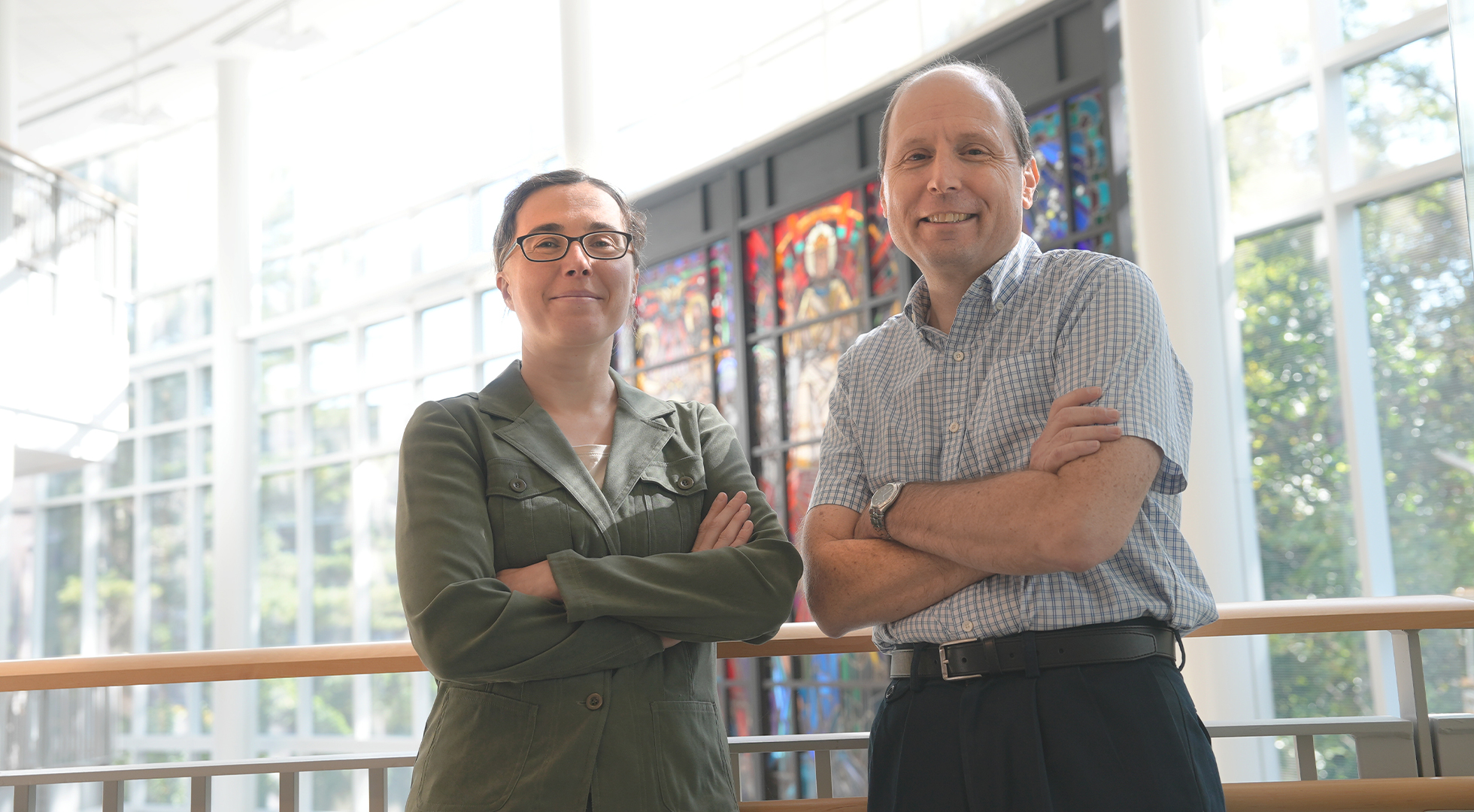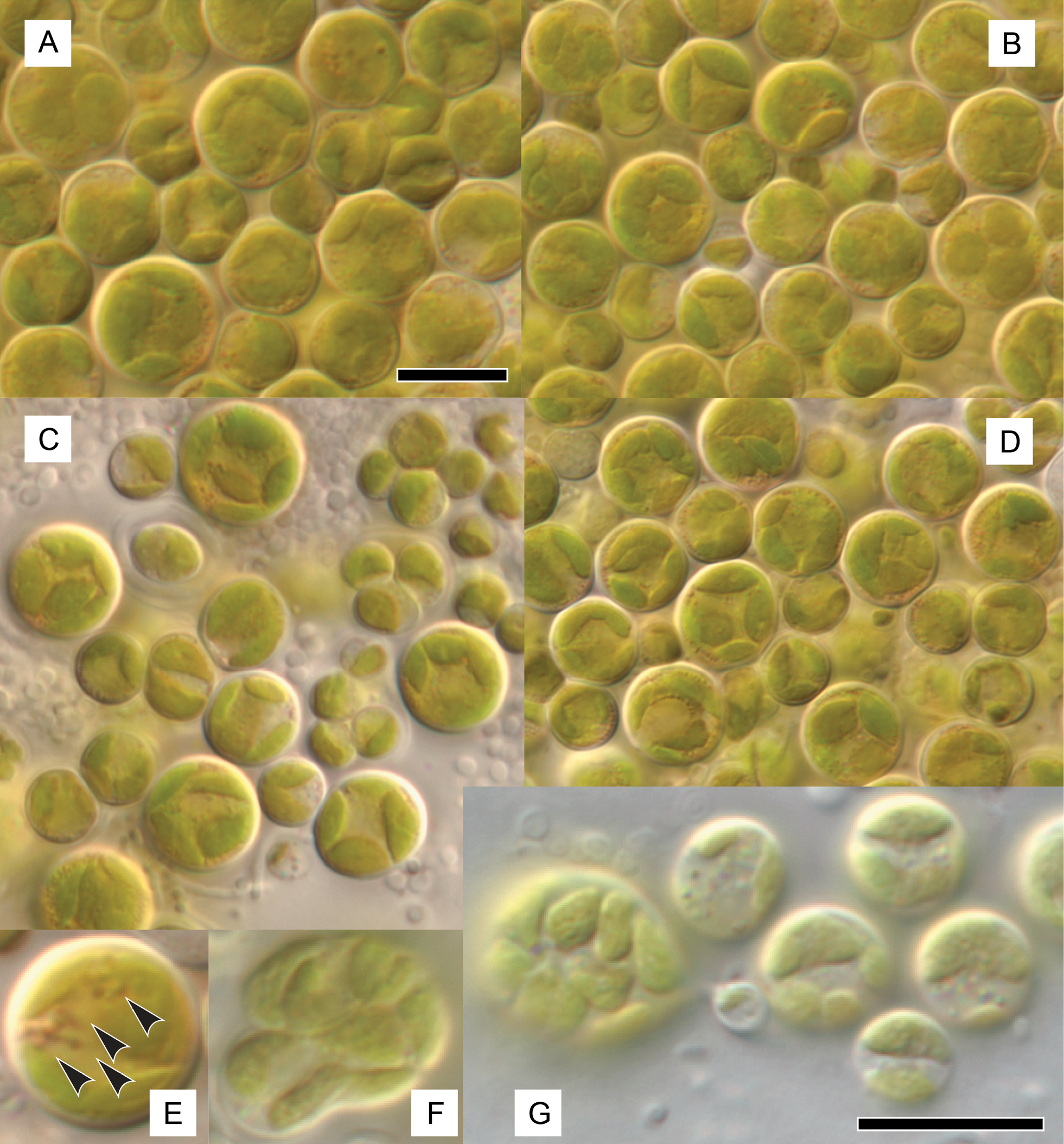Assumption Faculty and Alumnae Discover New Species of Algae

A team of researchers, including Assumption University professors Karolina Fučíková and Brian Niece and Assumption alumnae Melissa Taylor ’18 and Aleeza S. Isaac ’20, have published an article in scientific journal Plant Ecology and Evolution highlighting their discovery of a new species of green algae. The newly-discovered species of algae, named Johansenicoccus eremophilus, was discovered at Joshua Tree National Park in southern California and was first sampled by researcher Nicole Pietrasiak, a professor at the University of Nevada – Las Vegas, for a study on desert algae in 2006.
“Once we [Fučíková and Taylor] assembled the genomic data, we realized that this was very different from any other alga that has been described so far,” said Fučíková, who is currently an associate professor of biology.
The alga, named after Dr. Jeffrey R. Johansen, a mentor of both Fučíková and Pietrasiak, is not only a new species, but also of a whole new lineage of algae.
“To compare this discovery to the animal kingdom, this wouldn’t be like discovering a new frog, it would be like discovering something that is not a frog, not a salamander, not a caecilian…like something that is an amphibian but is completely different from everything else we know in that group,” Fučíková said. “It’s very, very different from what is known in that group of algae. Its genetic features are some that have not really been seen in green algae before.”

Initial data from the sample was collected by Fučíková and Pietrasiak between 2010 and 2014. The original sample came from Pietrasiak’s doctoral studies, where she traveled to Joshua Tree National Park to study soil crusts in the desert. The sample was collected through a process called transect sampling – a natural resource observation and measurement method that ensures a lack of bias in the discovery and collection process. Many of these samples revealed a host of biodiversity of algae, including the one studied and discovered in Assumption University’s Testa Science Center.
“This paper has been a long time coming,” said Fučíková. “The sample sat in a culture collection for maybe five years, and then the data sat on our computers for another decade.”
After displaying interest in techniques required to look at the genetic makeup of organisms, Taylor, a biology major in the Pre-Med program from the class of 2018, and Isaac, a biotechnology and molecular biology major from the class of 2020, became involved with the research. Isaac was awarded an honors fellowship grant to research over the course of a summer with Fučíková, and Taylor was awarded a paid fellowship from the Department of Biological and Physical Sciences. Both alumnae helped Niece and Fučíková assemble data, annotate genes, and examine oils produced by the algae sampled.
Niece and Fučíková both emphasized how important lab research experience is for students, as it provides them opportunities to both learn about scientific processes and receive hands-on, personal experience.
“It goes beyond putting this on their resumes,” said Niece, chair of the Department of Biological and Physical Sciences. “This is real research…we were striking out into the unknown, and in this case, all four of us learned some new procedures.”
“The research experience is having a deep dive into a topic and learning new skills … that is the important value for students,” said Fučíková.
Research relating to the article and the discovery of the new algae species was presented at the 2018 Northeast Algal Symposium by Taylor, which was nominated for the Symposium’s Presidential Award for undergraduates. Both Taylor and Isaac were also able to use their research experience and data to develop their honors theses, which were used in part to contribute to the final research article.

“Some of my work on different lipid values was really important in terms of being able to classify this particular alga as different from other algae,” Isaac said. “I’m happy to know that some of the things I worked on helped compile an even greater information database about this particular type of algae.”
The article, published September 6, 2023, highlights the discovery of the new lineage of algae as well as the processes used to analyze the specific sample taken. Since doing the research between 2017 and 2019, both alumnae have been involved with the process of the article’s publishing, assisting with reading and revisions.
Taylor now studies nursing at Massachusetts College of Pharmacy and Health Sciences while still doing clinical research at the University of Massachusetts Medical School. Isaac has continued doing research at Charles River Laboratories in Wilmington, MA.
“Algae were never their intended end games…but they recognized the value of the lab research on the way to getting to their goals,” said Niece.
Isaac emphasized how her lab research with Fučíková assisted with her professional career in a direct way, giving her the confidence to solve real-world problems in her further scientific studies.
“This particular project really helped me because what I did at Charles River was a lot of similar work,” Isaac said. “But instead of working with algae, I was working with drug candidates.”
Isaac noted that the scientific techniques she used during the discovery were a modified version of what she used in her research at Charles River.
“[The algae discovery] gave me the confidence to be able to problem solve certain things,” Isaac said. “Sometimes our machinery wasn’t working, sometimes it needed to be cleaned…you really have to be patient with your work. And that process of problem solving very much carried over into Charles River.”
